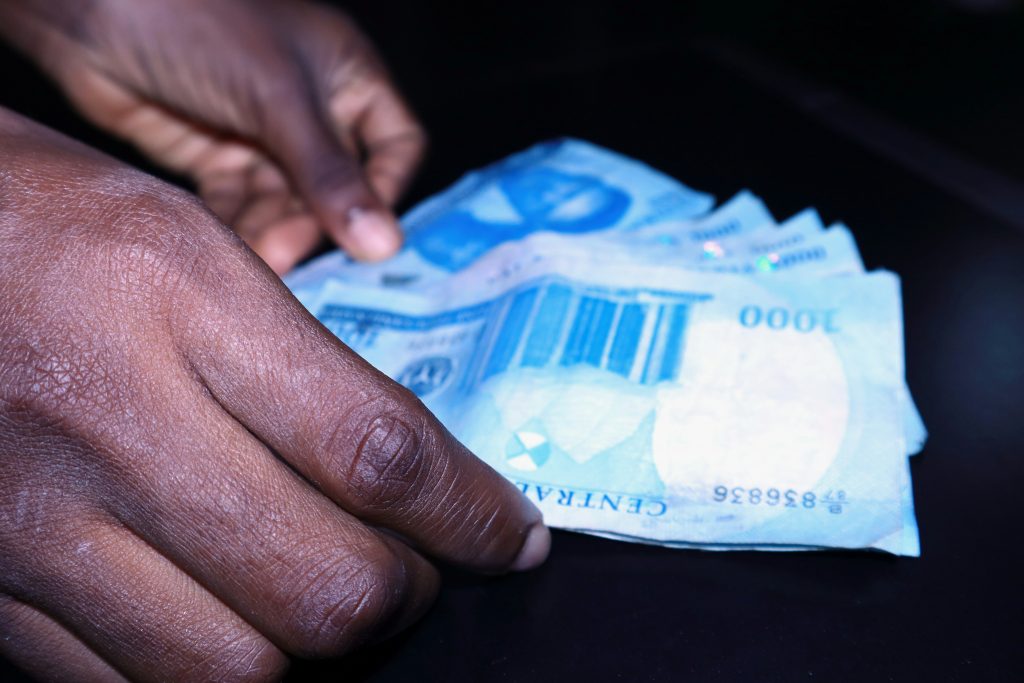
It’s no secret that Nigeria’s clandestine currency speculation market has evolved into a thriving underground economy, accounting for a staggering 20% of the country’s GDP. With the persistent decline of the naira in the formal banking sector, this lucrative alternative has paved the way for unscrupulous black market trading networks to seize control and effectively govern the market. What’s even more concerning is the dominance of Northern syndicates in this illicit trade. Since the 1970s, the Northern region of Nigeria has gradually emerged as the epicenter of the country’s black market currency trade.
Historical Origins: How Chronic Shortages and Policy Failure Gave Rise to Expansive Illegal Currency Markets
In the tumultuous 1980s, Nigeria’s black market emerged in a disjointed fashion, spurred by the country’s dire economic state. The nation was grappling with a debt crisis, dwindling oil profits, and ineffective austerity measures, resulting in a decline in the standard of living for the average citizen. Amidst these challenges, the government was burdened with meeting stringent global structural adjustment demands, compelling them to cling onto unattainable fixed exchange rates for the steadily weakening naira. As a result, the official currency channels were unable to match the true market value, leaving citizens with limited access to foreign banknotes.
This policy failure gave rise to currency shortages and pent-up demand that illegal street trade eagerly filled – feeding off desperation and instability much as black markets have done in crisis-hit countries globally. Port cities like Lagos, Onitsha and Kano became early hubs for dollars, pounds and Deutschmarks changing hands discreetly for vastly inflated sums as Nigerians sought to preserve savings, meet business demands, or escape dysfunction.
Opportunistic Northern Groups Leverage Regional Trade Networks to Gradually Seize Control
During the early years, the currency markets were chaotic and filled with temporary players, but northern syndicates saw the potential for profit as market makers. Using their extensive trade networks in West and Central Africa, these savvy groups strategically tapped into stable foreign currency supply chains. They built relationships with haulage fleets carrying goods such as livestock, textiles, and electronics from ports like Douala, providing them with naira in exchange for foreign banknotes. This practice became even more lucrative after further exchange restrictions were imposed following Nigeria’s 1993 currency crisis. These syndicates took advantage of the vast, ungoverned borders with neighboring countries like Niger, Chad, and Cameroon to traffic in dollars and pounds.
Within Nigeria’s domestic networks, strict loyalty and ethnic bonds were forged between agents and foot soldiers – often blood relatives or those speaking Hausa. Enforcers ensured those operating on fringes never even considered shortchanging syndicates.
Tactics of Consolidating Power: Taking Cues from Global Mafia Brokerage Markets
In their drive toward market control, northern groups demonstrated astute business instincts – taking cues from global criminal currency brokerage markets to run refined operations maximizing discretion while ruthlessly checking challengers. Physical trading moved off streets into discreet bureaus. WhatsApp groups allowed SMS directives to agents countrywide. Dollar hoarding created artificial scarcity whenever opportune. Violence and intimidation kept independents and southern traders continually on edge.
Occasional CBN announcements of raids provide effective smokescreens, enabled by tip-offs from embedded contacts. Attempts to trace the bank accounts and luxury assets behind kingpins repeatedly lead back to influential political and security patrons – indications of the collusion at highest levels across northern Nigeria allowing systemic black market activity to occur unchecked.
Rapid Tech Evolution Multiplies Reach
While Nigeria endured a cycle of naira devaluations, inflation spikes and foreign currency shortages throughout the 2010s, the black market once again found itself at the center of the economy – providing hard currency access. As smartphone penetration surged, networks shifted from street trade to encrypted communication apps like WhatsApp and Signal that took operations deeper underground. Syndicates cashed in on bank account openings to recruit students as retail brokers. Bitcoin exchanges tempted new patrons.
Experts now estimate around 80% of foreign currency flows into Nigeria routinely get diverted through the northern cash pipelines today, vastly exceeding the volume CBN manages to channel into official windows.
Integrated into Everyday Life, Creating Far-Reaching Distortions
The ubiquity of the system leads ordinary Nigerian citizens to seek out their nearest Mallam dealer down disheveled alleyways behind corrugated tin walls rather than face hostile bank queues. From market mammies searching stability for vegetable orders to industrialists importing Chinese machinery, Nigerians of all classes have learned the efficiency of black rates – even if technically illegal. Students, developers and creatives leverage the hidden cash economy to build their profiles online.
And the enduring impact stretches beyond daily street trade – creating grave macroeconomic distortions. Economists highlight currency speculation and round-tripping underlying the system causes naira/dollar rates to remain constantly suppressed while draining reserves. Meanwhile, investments dry up amid unattractive rates and opaque business climate. Collapsed purchasing power sinks millions deeper into poverty. Wealth leaves coffers, inflating overseas assets in Dubai, London and elsewhere.
Bottom line
As Nigerians struggle to cope with the consequences of a devalued currency fighting to regain stability against prominent international currencies, criminal organizations operating in the northern region are still reaping profits from the underground market, displaying no intentions of relinquishing their dominance.
Despite the involvement of influential political and security figures, the possibility of significant efforts to combat these illicit activities or implement legal reforms in the immediate future seems dim.
Until leaders acknowledge the systemic risks posed by the ongoing reliance on covert economic channels, it is probable that Nigeria’s unlawful financial practices will persist in diverting valuable currency away from legitimate channels for the foreseeable future.
